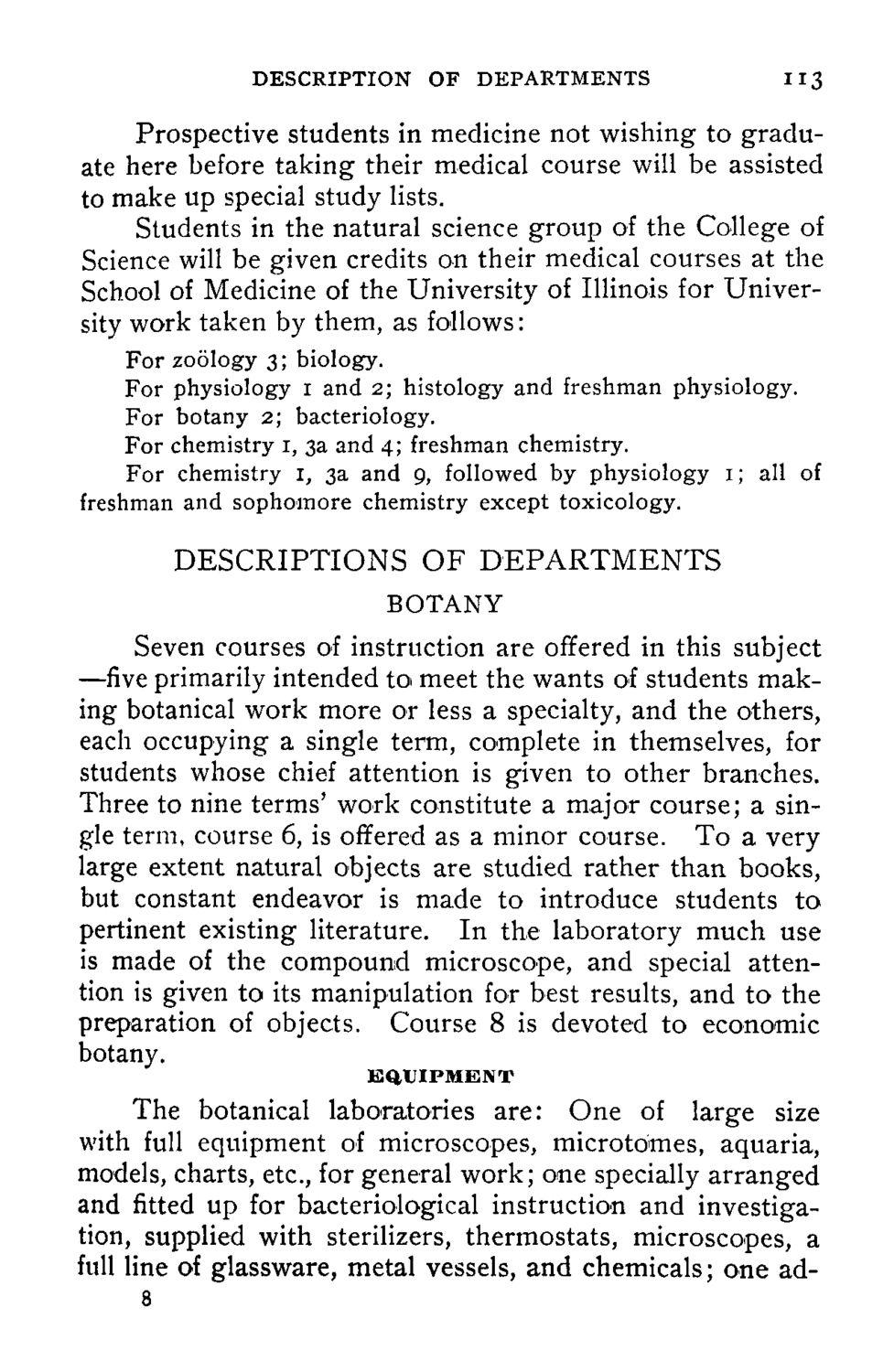| |
| |
Caption: Course Catalog - 1897-1898
This is a reduced-resolution page image for fast online browsing.

EXTRACTED TEXT FROM PAGE:
DESCRIPTION OF DEPARTMENTS 113 Prospective students in medicine not wishing to graduate here before taking their medical course will be assisted to make up special study lists. Students in the natural science group of the College of Science will be given credits on their medical courses at the School of Medicine of the University of Illinois for University work taken by them, as follows: For zoology 3; biology. For physiology I and 2; histology and freshman physiology. For botany 2; bacteriology. For chemistry 1, 3a and 4; freshman chemistry. For chemistry I, 3a and 9, followed by physiology 1; all of freshman and sophomore chemistry except toxicology. DESCRIPTIONS O F DEPARTMENTS BOTANY Seven courses of instruction are offered in this subject —five primarily intended to meet the wants of students making botanical work more or less a specialty, and the others, each occupying a single term, complete in themselves, for students whose chief attention is given to other branches. Three to nine terms' work constitute a major course; a single term, course 6, is offered as a minor course. To a very large extent natural objects are studied rather than books, but constant endeavor is made to introduce students to pertinent existing literature. In the laboratory much use is made of the compound microscope, and special attention is given to its manipulation for best results, and to the preparation of objects. Course 8 is devoted to economic botany. EQUIPMENT The botanical laboratories are: One of large size with full equipment of microscopes, microtomes, aquaria, models, charts, etc., for general work; one specially arranged and fitted up for bacteriological instruction and investigation, supplied with sterilizers, thermostats, microscopes, a full line of glassware, metal vessels, and chemicals; one ad-
| |